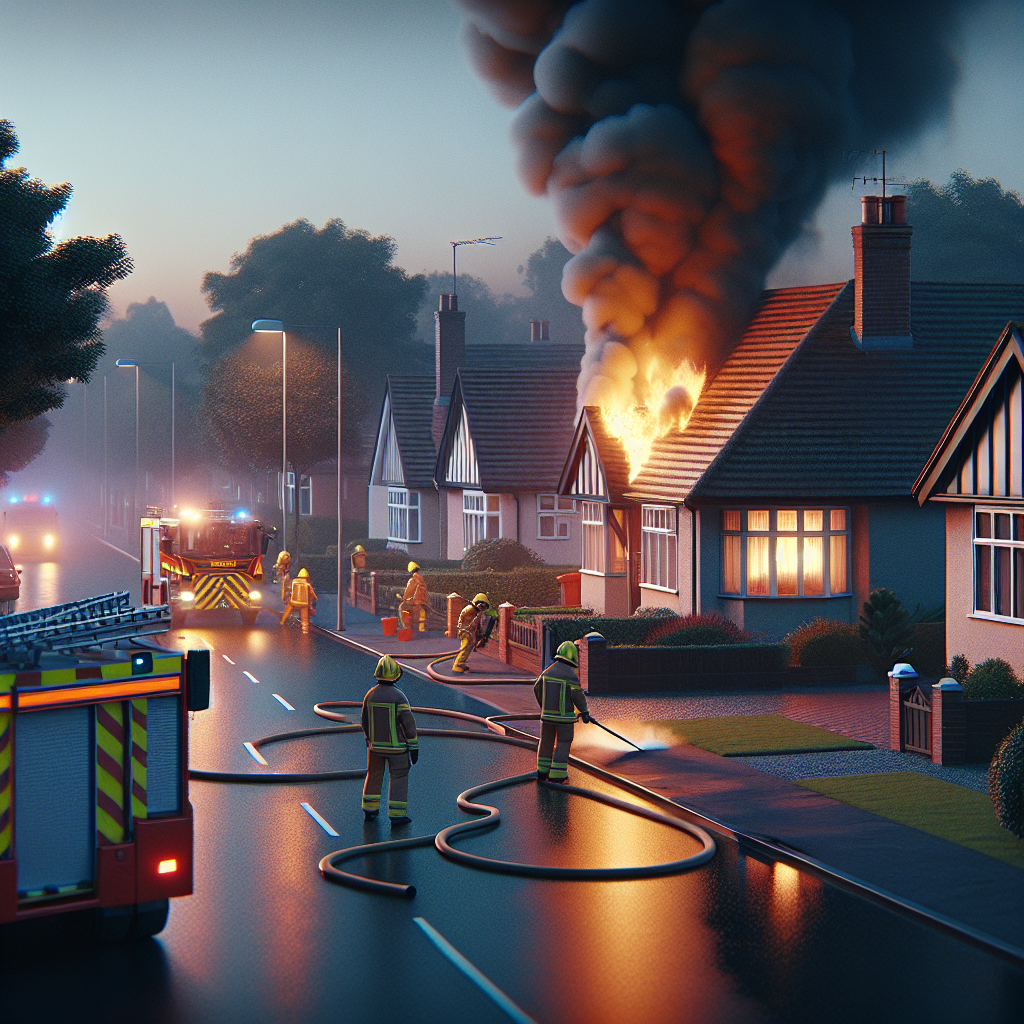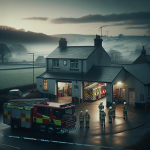Listen to this post: Tipton House Fire: Man and Dog Lose Lives in Tragedy
Summary
A devastating house fire struck the community of Tipton in the West Midlands, claiming the life of a man and his beloved dog. Local emergency services were called to the scene on Monday morning, where they found the house engulfed in flames. Despite their swift response, firefighters were unable to save the man and his pet from the blaze. The heartbreaking incident has left neighborhood residents in shock, sparking conversations around fire safety and emergency preparedness in residential areas.
Authorities are currently investigating the cause of the fire. West Midlands Fire Service deployed several fire engines to the scene, and crews worked tirelessly to contain the flames and prevent the fire from spreading to nearby homes. Neighbors reported seeing a large plume of smoke billowing from the property.
The identity of the victim has yet to be publicly disclosed, pending notification of relatives. Meanwhile, local officials and community leaders have extended their condolences to the family and friends affected by this tragedy. The fire also claimed the life of the man’s dog, further adding to the emotional weight of the incident.
This tragedy serves as a painful reminder of the risks that fires pose in our daily lives and the critical need for functioning smoke alarms, escape plans, and awareness around fire hazards in residential settings.
Analysis
The Tipton house fire is a sobering incident that underscores the importance of robust fire safety measures in homes. Although details continue to emerge, this tragedy aligns with broader patterns seen across the UK regarding residential fire incidents. Statistics from the Fire Brigades Union show that house fires remain one of the most common call-outs for emergency services in England, especially during colder months when heating systems and electrical usage spike.
Common Causes and Prevention
While the specific cause of the Tipton fire has not been confirmed, many residential fires stem from:
- Cooking accidents
- Heaters placed near flammable materials
- Faulty electrical wiring or appliances
- Unattended candles or cigarettes
Proper prevention methods include regular appliance maintenance, not overloading sockets, and ensuring smoke alarms are fitted and working in every room.
If every home had working smoke alarms and regular fire drills, we could prevent a significant portion of domestic fire fatalities.
Lisa Durrant, Senior Fire Safety Consultant
The Emotional Toll on Communities
Beyond the physical destruction, house fires leave emotional scars—especially when lives are lost. In Tipton, local residents have begun leaving flowers and messages near the affected home, demonstrating the tight-knit nature of the community and its shared grief.
Pets, often considered family members, exacerbate the emotional impact when they perish in these situations, as seen in this case. Animal rescue charities are also advocating for pet evacuation plans during emergencies.
Policy and Predictions
As tragedies like this continue to make headlines, there’s increasing pressure on local councils to:
- Mandate rigorous inspections for older homes
- Subsidize new smoke alarm technologies, including smart alarms
- Launch more public awareness campaigns around fire safety
Technological solutions such as AI-driven fire hazard detection systems, previously limited to commercial properties, are predicted to enter residential markets soon. These could provide early warnings by detecting temperature changes or smoke levels far earlier than traditional alarms.














